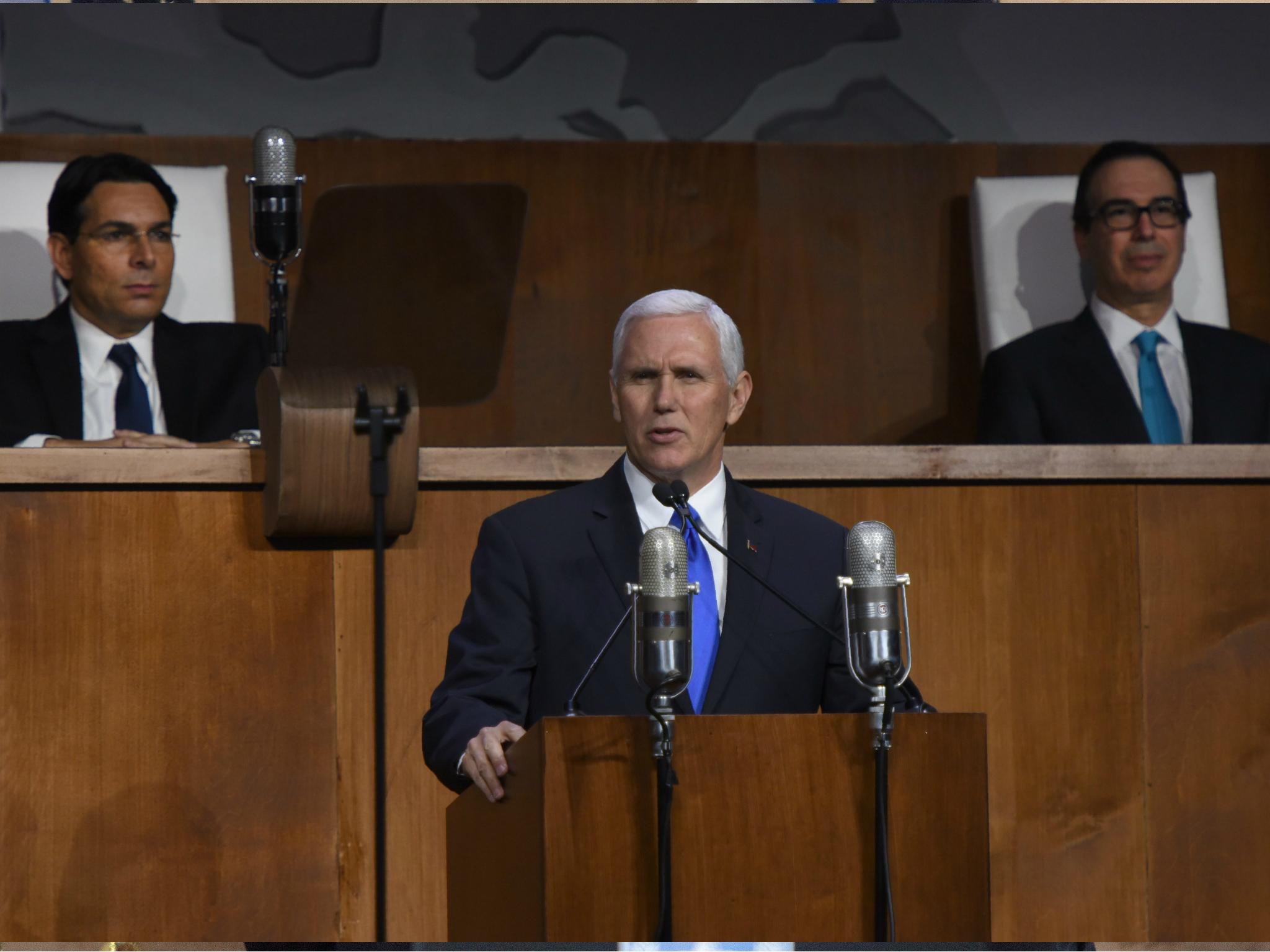Trump is 'actively considering' moving US embassy in Israel to Jerusalem again, after delaying decision
The Palestinian Authority's ambassador said not moving the embassy 'gives peace a chance'

US Vice President Mike Pence has said President Donald Trump is "actively considering" moving the US Embassy in Israel from Tel Aviv to the more controversial location of Jerusalem.
The idea to move the embassy had been in discussion back in June, but was postponed when Mr Trump signed a waiver to keep it in Tel Aviv.
Mr Pence said the only questions now are "when and how" to move the embassy despite the ongoing issues of Palestinian and Israeli control of the holy city of Jerusalem.
He made the comments in a speech at the Israeli Mission to the United Nations in New York to mark the 70th anniversary of the UN vote calling for the establishment of a Jewish state.
The likely reason Mr Pence has commented on the issue now is that the waiver Mr Trump signed in June is coming up against a deadline next month to either extend the waiver - as predecessors have done in order to avoid adding more fuel to the fiery tensions in the region - or go through with the move.
The 1995 Jerusalem Embassy Act, signed by Congress, requires the move but the waiver option has been exercised ever since.
When the act was signed, then-Israeli Prime Minister Yitzhak Rabin did not have a full-throated support for the move. Former US Ambassador to Israel Dan Shapiro, who served in Senator Dianne Feinstein's office at the time, commented on Twitter that Mr Rabin "didn't want it forced when it could disrupt the overriding strategic goal of completing successful negotiations [with] the Palestinians."
At the time of the waiver signing, the White House had said in a statement that the President "made this decision to maximize the chances of successfully negotiating a deal between Israel and the Palestinians, fulfilling his solemn obligation to defend America's national security interests."
Mr Trump named his son-in-law and White House advisor Jared Kushner as one of the main brokers of a peace deal between Israel and Palestine.
He came under fire for the decision primarily because Mr Kushner lacks any diplomatic experience but is also close family friends with Israeli Prime Minister Benjamin Netanyahu. Mr Kushner's parents have also contributed to Israeli settlements that Palestinians have said encroach on their land.
Though Mr Netanyahu was "disappointed" with Mr Trump's waiver despite months of rhetoric on the move, the Head of the Palestinian Liberation Organisation's General Delegation to the US, Husam Zomlot, said signing the waiver "gives peace a chance."
Leading Israeli columnist Nahum Barnea had argued to NPR in June that despite the controversy surrounding the move in the US, it was never a point of contention in Israel.
"For many Jews in America, it is a kind of symbol. Here, it was never the top of the agenda. It was never prioritised," Mr Barnea said.
US Ambassador to the UN Nikki Haley has been a strong supporter of Israel in her capacity, even threatening to leave the Human Rights Council because the Geneva-based UN body has a "chronic anti-Israel bias" because resolutions against Israel for its perceived treatment of Palestinians appear on the group's calendar frequently.
In his remarks at the New York event, Mr Pence said: "the days of Israel-bashing at the United Nations are over because her cause is our cause, her values are our values and her fight is our fight."
Join our commenting forum
Join thought-provoking conversations, follow other Independent readers and see their replies
0Comments